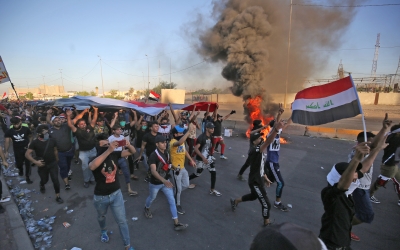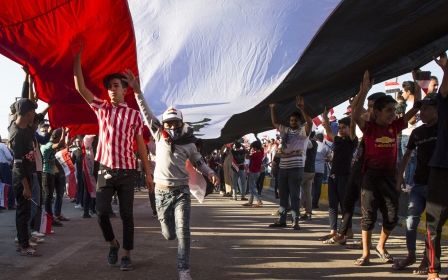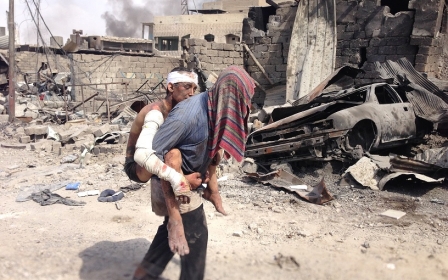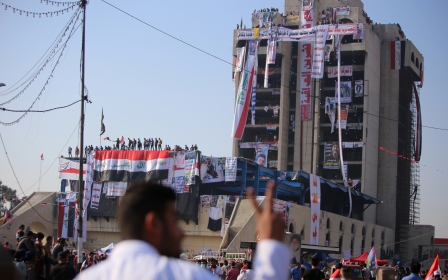Iraqis block vital roads and bridges in Baghdad as internet cut again
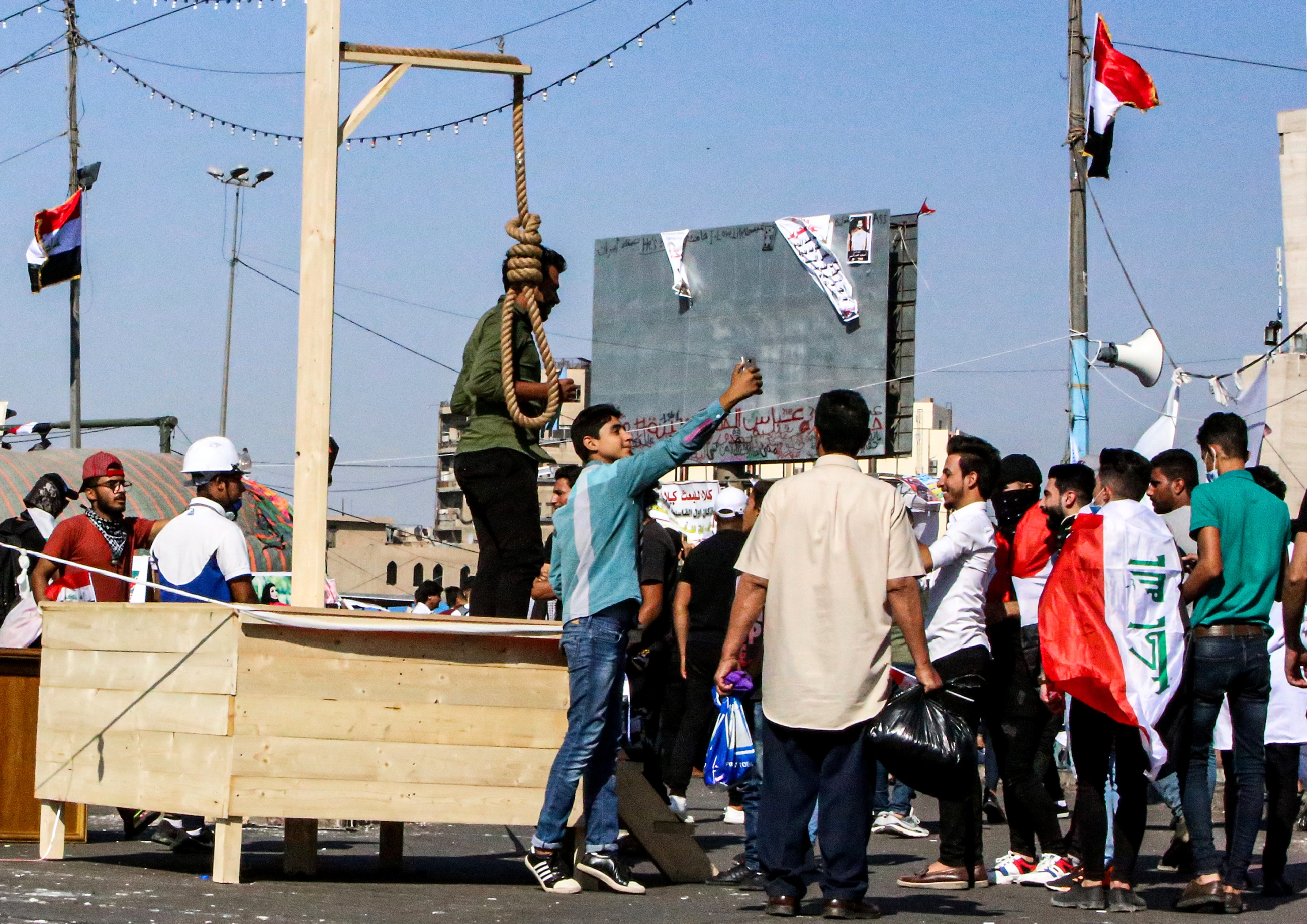
Iraqi protesters have blocked several roads and bridges in the capital on Tuesday, as the government imposed an internet blackout across the country.
Protesters blocked roads in and around their main protest site at Tahrir Square in Baghdad, burning tyres and setting up barbed wire fences, the AFP news agency reported.
'They already cut the internet once, and doing it again won't do anything'
- Ammar, 41, protester in Baghdad
The demonstrators, mostly young, unemployed men, carried Iraqi flags and chanted anti-government protests, demanding jobs, water and electricity.
Hundreds of people also rallied on the al-Jumhuriya bridge, a day after at least five people were killed by security forces when they fired live ammunition.
In the south, Iraqi officials said at least one protester was killed after security forces tried to reopen a key port that has been shut for the past three days.
New MEE newsletter: Jerusalem Dispatch
Sign up to get the latest insights and analysis on Israel-Palestine, alongside Turkey Unpacked and other MEE newsletters
Security and medical officials told the AP news agency that eight people were wounded when authorities fired live ammunition and tear gas at protesters in the city of Umm Qasr.
A strike by teachers has shut down schools throughout much of the south, while government buildings have also been closed, in some cases draped with banners proclaiming: "Closed by order of the people."
In the southern cities of Kut, Nasiriyah and Diwaniyah, all government offices were closed on Tuesday.
And in the capital, demonstrators remained camped out in Tahrir Square, where they have set up tents and occupied buildings for more than a week.
They vowed to stay on Tuesday despite restrictions on the internet, which went down at midnight and came back around 9am before being cut again.
"They already cut the internet once, and doing it again won't do anything," said Ammar, a 41-year-old protester in the square.
Cyber security NGO NetBlocks said Tuesday's blackout is "the most severe telecommunication restriction" imposed by Iraqi authorities since 1 October.
Hundreds of casualties
In the predominantly Sunni province of Anbar, which has yet to witness any street protests, authorities detained two men for posting messages of solidarity on Facebook.
Human Rights Watch reported that residents were remaining quiet of out of fear of being labelled "terrorists" or backers of former leader Saddam Hussein.
The capital and much of the country's Shia south have been rocked by a wave of demonstrations since 25 October, as anger mounts over deep-seated corruption, lack of public services and cronyism that has afflicted Iraq since the 2003 US-led invasion.
The protests have threatened to plunge the country into a new cycle of instability, barely two years after it declared victory over the Islamic State (IS) group.
According to the Iraqi High Commission for Human Rights, at least 260 people have been killed and 12,000 others injured since the demonstrations began.
Iraqi security forces have regularly used live ammunition to disperse the crowds, and have been accused by rights groups of deliberately firing military-grade tear gas canisters at the heads of protesters.
'Big losses'
Prime Minister Adel Abdul Mahdi, who took office just a year ago, has pledged to address the demonstrators' grievances by reshuffling his cabinet and delivering a package of reforms.
On Sunday, Abdul Mahdi said the protests had cost Iraq "billions of dollars" and pleaded with the protesters to stop. "It is time for life to go back to normal", he said.
The protests have "shook the political system" and achieved their purpose and must stop affecting the country's trade and economic activities, Abdul Mahdi said in a statement.
"Threatening oil interests and blocking roads leading to Iraq's ports is causing big losses exceeding billions of dollars," he added, warning that the unrest could push up the price of goods.
However, his comments have done little to quell the demonstrators, whose ire is also focused on the country's elite, who they say have failed to improve their lives after years of conflict and economic hardship.
According to World Bank figures, around seven million Iraqis live below the poverty line, and youth unemployment is at 25 percent.
The rates are staggering for OPEC's second-biggest oil producer, which Transparency International ranks as the 12th most corrupt state in the world.
Middle East Eye delivers independent and unrivalled coverage and analysis of the Middle East, North Africa and beyond. To learn more about republishing this content and the associated fees, please fill out this form. More about MEE can be found here.


